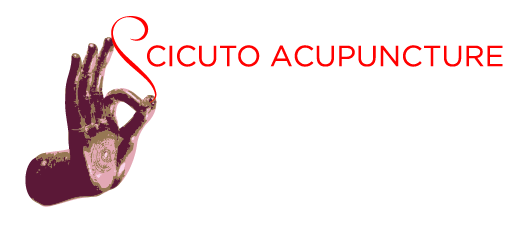The Benefits of Acupuncture Before and After Surgery
(This article originally appeared on Acutakehealth.com)
Have you seen Iron Man 3? At the end, there’s a scene when main character Tony Stark is undergoing surgery. If you look closely, you can see acupuncture needles in his chest.
That’s Hollywood, but historically, acupuncture actually has been used, mostly in China, for anesthesia during surgery. It’s no longer standard practice, but with acupuncture becoming increasingly present in mainstream medical settings, we may see it make a comeback in surgical procedures.
In the meantime, acupuncture can go a long way toward keeping people healthy before and after surgery. You don’t have to be a superhero to reap the combined power of acupuncture and surgery.
Why Get Pre- and Post-Op Acupuncture?
Surgical procedures, no matter how small, are significant health events that have physical and emotional effects. Here are six benefits of including acupuncture in your preparation for and recovery from surgery:
It will calm you down.
Nervous about having surgery? Schedule an acupuncture appointment about one week before. It will help calm your nerves. It can also improve your sleep, something many people struggle with prior to a procedure.
After your acupuncture treatment, ask your acupuncturist to leave you with some ear seeds. These are tiny seeds made of an herb called Vaccaria, or of metal, backed with a small piece of medical tape. They are placed on acupuncture points, usually in the ear, to provided a sustained effect after you leave the acupuncturist’s office. To activate the points, just press the seeds a few times daily for about 30 seconds.
It will strengthen your immune system.
It’s important to stay healthy leading up to any surgery—some surgical procedures must be rescheduled if the patient is ill. After surgery, you may have to stay in the hospital for a while, which means being in close contact with sick people. Acupuncture can help strengthen your immune system so that you go in for surgery as planned and recover as quickly as possible.
It will decrease postoperative pain and side effects.
Getting acupuncture after surgery can help relieve postoperative pain. When you have less pain, you’re able to start moving around and getting back to normal more quickly. In addition, less pain means fewer pain medications, many of which can cause nausea, vomiting and itching. By decreasing postoperative pain, acupuncture helps reduce these side effects.
It will reduce cosmetic scars.
Acupuncture can work wonders on scars. After your surgical scars have started healing, your acupuncturist can needle underneath the scar and perform moxibustion with a tiger warmer directly on the area. This technique works well with old and new scars. If the scar has developed a keloid, it may take longer to see improvement, but in time, the scar will soften and become less noticeable.
It will reduce internal scarring.
The same benefits of acupuncture apply to internal scars—acupuncture and moxibustion break up scar tissue, regardless of where it is on the body. By loosening up internal scar tissue, acupuncture can provide improved mobility and decrease pain.
Thinking about scars from an acupuncture perspective, acupuncture helps reconnect the acupuncture meridians that may have been cut into during surgery. In doing so, acupuncture can bring back sensation to the affected area and help restore normal functioning of the interconnected meridian system.
It will help you recover faster.
Rest and sleep are two keys to recovering from surgery. The days and weeks after surgery are a good time to be quiet and still, and to do less. It’s a time to ask friends and family for help. From an acupuncture perspective, these are all acts of cultivating Yin. Certain acupuncture points, and self-care recommendations from your acupuncturist, can speed up your recovery by encouraging you to take the time you need to heal.
Keep Your Acupuncturist in the Know
Make sure to tell your acupuncturist if you are about to have surgery. Acupuncture is safe before and after surgery. However, some acupuncture points can have a similar effect to the blood-thinning medications you’re told to avoid before surgery.
Besides, it’s always a good idea to inform your acupuncturist about any upcoming or recent major health events. Events such as surgeries can affect us on multiple levels, physical and emotional. As a holistic medicine, acupuncture addresses all of these factors, so your acupuncturist will be very interested in knowing if you’re about to undergo surgery or if you recently had a procedure.

